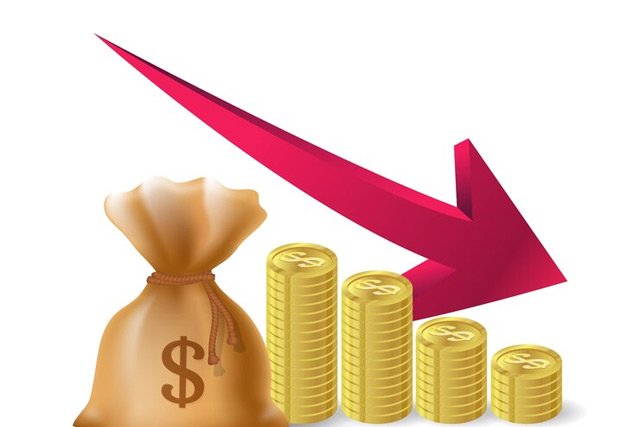In the intricate dance of personal finance, distinguishing between being frugal vs cheap can significantly impact not just your budget but your overall quality of life. In this comprehensive guide, we delve into the subtle nuances that separate the two, explore real-life examples, and provide valuable insights to help you navigate the path of intentional living.
1- Frugal vs. Cheap: Unraveling the Distinctions

In the financial realm, the terms “frugal” and “cheap” often intermingle, but they are distinct approaches with unique mindsets. Understanding these differences is the first step toward making conscious choices that align with your values.
1.1. Cheapness: A Superficial Pursuit
Cheap individuals focus solely on cost, often sacrificing quality and long-term value. This section dissects the pitfalls of a cheap mindset and its potential repercussions.
1.2. Frugality: Balancing Cost and Value
Frugality involves a thoughtful consideration of both cost and value. This section explores how a frugal mindset allows for budget-conscious decisions without compromising on quality or lasting impact.
2- Real-Life Examples: Frugal Wins vs. Cheap Regrets

Concrete examples offer a practical understanding of how frugality and cheapness manifest in daily life. Explore scenarios that highlight the stark contrasts between these two financial philosophies.
2.1. Mike vs. John: A Concert Experience
A vivid illustration comparing Mike’s one-time concert experience with John’s frugal approach, allowing for two fulfilling events within the same budget.
2.2. Everyday Frugal Habits vs. Cheap Shortcuts
Detailed examples of frugal choices that promote sustainability and mindful living versus cheap shortcuts that often lead to regret.
3- Why Frugality Prevails: Beyond Financial Gains

Delving into the profound impact of embracing a frugal lifestyle, this section explores the broader benefits that extend beyond mere financial gains.
3.1. Environmental Impact
How frugality contributes to sustainability by reducing consumption and minimizing waste, thus leaving a positive imprint on the environment.
3.2. Community Building
Frugal living fosters community through sharing, swapping, and giving. Examples include Buy Nothing groups and communal potluck meals.
3.3. Positive Social Perception
Highlighting the social desirability of frugality, backed by statistics indicating that a significant percentage of Americans find frugality an attractive quality.
4- Tips for Embracing a Frugal Lifestyle: A Practical Toolkit

Transitioning to a frugal lifestyle involves practical strategies and a shift in mindset. This section provides actionable tips for seamlessly incorporating frugality into your daily routine.
4.1. Think Long Term
Guidance on prioritizing long-term benefits over short-term gains, emphasizing the value of investing in quality assets and durability.
4.2. Practice Mindful Spending
Insights into intentional spending, encouraging individuals to align their expenditures with personal values and budget consciously.
4.3. Value Your Time
Acknowledging the importance of time as a valuable resource and offering tips on evaluating whether certain cost-saving measures are worth investing time and energy.
4.4. Do Your Research
Encouraging well-informed purchases through research tools, ensuring that quality is not compromised for the sake of frugality.
4.5. Consider Others
Highlighting the social aspect of frugality, promoting consideration for others, and maintaining healthy relationships while on a frugal journey.
5- Items and Services Worth the Investment: A Frugal Guide to Quality

Certain aspects of life warrant prioritizing quality over cost. This section provides a curated list of items and services where investing wisely ensures long-term value, safety, and well-being.
5.1. Auto Insurance
Exploring why quality auto insurance is crucial for long-term earning and safety.
5.2. Mattresses
Understanding the importance of quality sleep and how investing in a durable mattress contributes to overall well-being.
5.3. Health Care
Emphasizing the significance of quality health care and health insurance, as compromise in this area may lead to long-term consequences.
6- The Psychology of Spending: Understanding Your Money Mindset

Unraveling the intricate web of thoughts and emotions that influence our spending habits, this section explores the psychology behind our financial decisions.
6.1. Emotional Spending
Delving into how emotions can drive impulsive and unnecessary purchases and providing strategies to develop emotional intelligence in financial matters.
6.2. The Influence of Social Media
Explore the impact of social media on consumer behavior and offer tips on navigating the virtual world to make mindful spending choices.
7- Frugality and Personal Growth: A Symbiotic Relationship

Examining how adopting a frugal lifestyle can catalyze personal development and contribute to a holistic sense of well-being.
7.1. Financial Independence and Beyond
Exploring the connection between financial independence and quick growth and how a frugal mindset can pave the way for a more fulfilling life.
7.2. Learning from Setbacks
Highlighting the resilience cultivated through frugal living, and providing anecdotes of individuals who turned financial setbacks into opportunities for growth.
7.3. Mindful Consumption and Inner Fulfillment
Delving into the transformative power of mindful consumption, showcasing how a frugal approach fosters a deeper connection with possessions and cultivates inner fulfillment.
Conclusion
In the vast landscape of personal finance, the journey towards frugality is not just about saving money; it’s about intentional living, sustainability, and fostering positive relationships. As you embark on your frugal adventure, remember that it’s not about deprivation but about aligning your spending with what truly matters. By understanding the delicate dance between frugality and cheapness, you can sculpt a life that is both financially savvy and fulfilling.
FAQ
Frugality is about making intentional choices that align with your values. Balance your spending by focusing on what brings genuine joy and value to your life, rather than mindlessly cutting costs.
Absolutely. Frugality emphasizes maximizing value, not just minimizing cost. Prioritize well-researched purchases to ensure you get quality without breaking the bank.
Frugality is not about deprivation. Evaluate your discretionary spending and identify areas where you can redirect funds to what matters most to you, ensuring a balanced and intentional financial approach.
Create a shopping list before sales events, focusing on needs rather than wants. Stick to your list to avoid succumbing to the temptation of unnecessary purchases.
Absolutely. Frugality encourages shared experiences and community. Explore cost-effective social activities, potluck dinners, or outdoor gatherings to maintain an active social life without overspending.
Frugality extends beyond finances. By consuming less, you contribute to a sustainable lifestyle, reduce environmental impact, and foster positive relationships within your community.